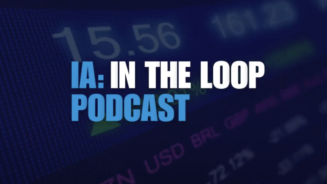For example, Apartheid was still going on in South Africa at the time. She explains: “The criteria was that we would have avoided companies that had an exposure of more than 10% in revenue or profits coming from South Africa. Most of the companies working in South Africa at the time were really supportive of local communities through medical care, education and family support, in ways that really surprised me.”
In that sense, Round says she has learned that if you are running any kind of fund with a responsible approach, you need to remember that no political issue is ever as simple as it first seems.
“What starts off as a position where you don’t want to be seen as being supportive of the regime, then you realise that these companies are actually doing something really positive.”
Round mentions alcohol as a topic of similar character today. “Is it really ethical to exclude alcohol? For the mainstream investor, is alcohol still a problem?” she asks. “A lot of alcohol producers do a lot in terms of charity, sponsorship and community work today.”
So for Round it is important to distinguish what are actually characteristics of the business, and how much is about personal behaviours and responsibilities when it comes to making responsible investment decisions.
The fund does stay out of alcohol, tobacco, arms and gambling, as well as animal testing for household goods. Its broader theme is environmental improvement.
“The key things that I’m looking for are any companies that are working in areas that support improvements in the environment,” she says, stressing this spans a huge spectrum of different types of industries.
“It could be anything from making switches and filters through to water treatment solutions.”
Round is a long-term fundamental value investor and typically looks at balance sheet, cash flow, dividends, ability to pay and valuation metrics. The fund manager says she asks her clients about how they feel about certain issues, and says corporate governance is a clear issue today – executive pay is an especially hot topic.
According to Round, the ability to switch between sectors is restricted to an extent because of the way that they are screening out 25-30% of the FTSE All Share companies. Mid-cap is where the fund finds most of its opportunities, at the moment, and she is keeping an eye open for distressed valuations.





